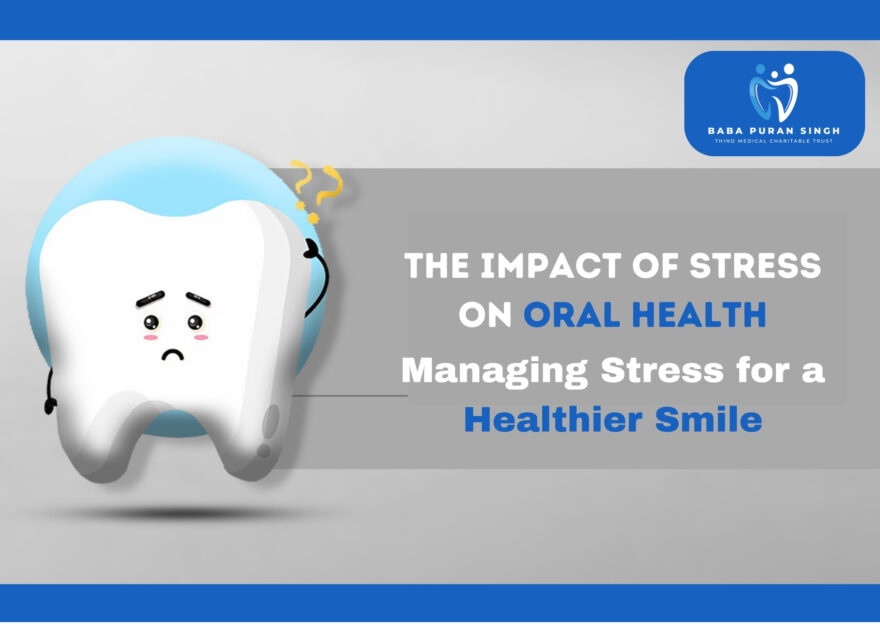In the hustle and bustle of today’s world, stress has become an integral aspect of daily life for countless individuals. While stress can manifest in various ways, its impact on oral health is often overlooked. From bruxism (teeth grinding) to gum disease, stress can contribute to a host of dental problems that affect the overall well-being of individuals. At Baba Puran Singh Dental Charitable Trust in Ludhiana, we recognize the profound connection between stress and oral health and are committed to helping our community manage stress effectively for a healthier smile.
Read: Innovation in Dental Training: Equipping Dentists for Modern Challenges
Understanding the Link Between Stress and Oral Health
Stress affects the body in numerous ways, including its impact on oral health. When individuals experience stress, the body’s natural response triggers the release of stress hormones such as cortisol and adrenaline. These hormones can lead to a range of physiological changes that affect oral health, including:
1. Bruxism (Teeth Grinding):
Stress and anxiety often manifest as bruxism, a condition characterized by involuntary teeth grinding or clenching. Over time, bruxism can lead to wear and tear on the teeth, enamel erosion, jaw pain, and temporomandibular joint (TMJ) disorders.
2. Gum Disease:
Persistent stress diminishes the effectiveness of the immune system, rendering individuals more vulnerable to various infections, including gum disease. Stress-induced inflammation can exacerbate gingivitis (early-stage gum disease) and contribute to the progression of periodontitis (advanced gum disease), leading to gum recession, bone loss, and tooth loss.
Read: Smile Makeovers: Charitable Dentistry’s Transformative Impact on Lives
3. Dry Mouth:
Stress can disrupt the body’s natural saliva production, resulting in dry mouth (xerostomia). Reduced saliva flow increases the risk of oral health problems such as tooth decay, gum disease, and oral infections, as saliva plays a crucial role in neutralizing acids, washing away food particles, and maintaining oral pH balance.
4. Canker Sores and Cold Sores:
Stress can trigger the recurrence of oral ulcers, including canker sores (aphthous ulcers) and cold sores (oral herpes). These painful lesions can develop on the lips, tongue, cheeks, or soft palate, causing discomfort and interfering with oral function.
Managing Stress for a Healthier Smile
While stress is an inevitable part of life, there are various strategies individuals can adopt to manage stress effectively and mitigate its impact on oral health. At Baba Puran Singh Dental Charitable Trust in Ludhiana, we emphasize the importance of stress management as an integral component of preventive dental care. Here are some practical tips for managing stress for a healthier smile:
Read: Dental Care During Pregnancy: Our Guide for Expecting Mothers
1. Stress Reduction Techniques:
Encourage patients to incorporate stress reduction techniques into their daily routine, such as deep breathing exercises, meditation, yoga, or mindfulness practices. These techniques promote relaxation, reduce muscle tension, and alleviate stress-related symptoms such as bruxism and jaw pain.
2. Regular Exercise:
Physical activity is a natural stress reliever that releases endorphins, the body’s feel-good hormones. Encourage patients to engage in regular exercise, whether it’s walking, jogging, swimming, or cycling, to reduce stress levels and promote overall well-being.
3. Healthy Lifestyle Habits:
Advocate for healthy lifestyle habits that support both physical and mental health, including balanced nutrition, adequate sleep, and hydration. A well-balanced diet rich in fruits, vegetables, lean proteins, and whole grains provides essential nutrients that support immune function and combat stress-related inflammation.
4. Stress Management Techniques:
Teach patients practical stress management techniques such as time management, problem-solving skills, and assertive communication. Empowering individuals to identify stress triggers, set realistic goals, and establish healthy boundaries can help them navigate stressors more effectively and maintain optimal oral health.
5. Regular Dental Check-ups:
Emphasize the importance of regular dental check-ups and professional cleanings in maintaining oral health, especially during times of increased stress. Routine dental visits allow dentists to monitor oral health status, detect early signs of dental problems, and provide timely interventions to prevent complications.
6. Seeking Support:
Encourage patients to seek support from friends, family members, or mental health professionals when dealing with chronic stress or anxiety. Building a strong support network and seeking professional help when needed can alleviate emotional distress and promote resilience in coping with stressors.
Read: Preventive Dentistry: A Thorough Guide to Healthy Smiles
Conclusion
In conclusion, stress can have a significant impact on oral health, contributing to a range of dental problems that affect the overall well-being of individuals. At Baba Puran Singh Dental Charitable Trust in Ludhiana, we recognize the importance of stress management as an integral part of preventive dental care. By educating our community about the link between stress and oral health and providing practical strategies for stress management, we empower individuals to take proactive steps towards a healthier smile. Together, we can reduce the burden of stress-related dental issues and promote lasting oral health and wellness for generations to come.
To learn more about managing stress for a healthier smile and how Baba Puran Singh Dental Charitable Trust in Ludhiana can support your oral health needs, please don’t hesitate to contact us. Our compassionate team is here to provide guidance, support, and personalized dental care solutions.

